Opinion: Athletic Blacks vs Smart Whites
Jamaican sprinter Usain Bolt dashes toward the finish line during his race.
If Black people so heavily dominate Basketball, Track, and Football, they must be built differently than the rest of us, right? This is the logic many people hold: Black people possess an inherent physical advantage over other races in sports. Though it may seem like a compliment, this stereotype is actually quite damaging.
The truth is, Black athletes are often praised for their athletic ability: jumping, sprinting, and shooting hoops. But rarely are they credited for their hard work, their knowledge of the game, and their discipline. This implies that Black athletes don’t work hard at being good players and aren’t truly knowledgeable about their sport. Black athletes are “freaks of nature”, rather than genuine athletes who have put their blood, sweat and tears into the activity.
Historically, enslaved Black people were quite literally bred for their physical skill while White people were the ones who were considered intelligent and intellectually superior. Plantation owners would force the tallest and strongest of the enslaved to have sex in hopes of creating future generations of free labor. Former sports commentator, Jimmy the Greek, agreed with this statement; in 1988, he claimed that Blacks are better athletes than Whites because they have been “bred to be that way”, and that “the only thing left for the Whites is a couple of coaching jobs.” Though blatantly racist, this is what many people believe in our country.
Biological factors do not allow certain races to excel in certain sports, cultural factors do. China produces a lot of ping-pong players, baseball has become a big part of Latin American culture, and Jamaica produces plenty of sprinters because Track and Field is just a huge aspect of their national identity. Black people are only able to dominate in the sports they have access to. This is why there are not many Black tennis players, for example. Because to play a sport, you have to be able to afford it. There are many financial barriers that stand in the way of success for many Black athletes in plenty of sports. Sports such as basketball, track, and football require much less equipment than many other sports. The reason why Black people dominate Basketball, Football, and Track is simply because it is what they can afford to excel in.
A good example of this can be seen in Reinaldo Green’s film “King Richard,” the first mainstream movie following the lives of Serena and Venus Williams. “King Richard” trailblazes Black women in a historically White sport. Serena and Venus had to work just as hard as the White kids, if not harder, in order to become star athletes in the sport due to economic barriers and racism. The film follows them along their athletic journey, showing scenes of the young girls working hard on a daily basis. This is also encompassed in the life of Usain Bolt: born and raised in Jamaica, he suffered from extreme poverty. Considering all you need to run is a pair of shoes, Bolt was able to work hard to become one of the fastest men in the world using only what he had access to.
Another key aspect of success in sports for Black people is desperation. Because Black people do not often have access to the American Dream, they are forced into a corner, producing a drive like no other. Black people are more often than not only given two options; to be athletes or to be entertainers. There is a difference between a kid who really wants to be an athlete and a kid who feels as though they have no other choice.
There have been many critiques that Black people should just “stick to sports” or “shut up and dribble,” as though that’s all they’re good for. But when they leave the court, track, or field, they are still Black in America. They are still complex human beings who are fighting for equality in a country that puts them in a box. There are many examples of Black athletes using their minds to create change in the world, setting them apart from the stereotype that sports are all they’re good for. Colin Kaepernick’s 2021 show, “Colin in Black and White”, is a fine case of this. The show covers Kaepernick’s life growing up and his journey with basketball, baseball, and racism. One of the best examples in the show was when he compared the NFL draft to slave auctions. This analogy received a lot of backlash, but once you consider generational breeding and the fact that many Black athletes have no other choice but to play football, it makes a lot of sense.
There is a long with-standing stereotype in sports that views Black athletes as subhuman and superhuman all at once. Just as it was during chattel slavery, Black athletes are called “beasts” who are expected to be able to endure mass amounts of pain. Heatstroke was the cause of death for University of Maryland football player Jordan McNair following an extremely taxing and grueling practice after training staff failed to properly diagnose and treat his condition. Our society’s belief that Black athletes have a distinct physicality that allows them to work their bodies to maximum capacity is a dangerous mindset. This is exactly how enslaved Black people were exploited in the past.
Continuing on, Black athletes are not valued for their academic achievements. But stereotypes are made to be broken; this is embodied through men like Myron Rolle. He played college football at Florida State and was drafted by the Tennessee Titans in the sixth round of the 2010 NFL Draft, making Rolle one of just three Rhodes Scholars to play in the NFL. Throughout his high school career, he maintained a 4.0 grade point average and accumulated 21 advanced placement credits. He has also created various humanitarian organizations and programs. He is now a neurosurgeon.
Stereotypes are broken every day in our own community as well. Sophomore Evan Parker shared some information regarding his experience as a student-athlete. He runs track, cross country, does debate, and maintains a 4.5 grade-point average. He said, “Freshman year was the hardest so far because of AP Biology and AP World History. It was hard balancing school, track, and debate last year. I’d be doing homework in class and at lunch because I was always too tired to do work at home. I’m taking five AP classes my junior year and I’m honestly terrified. I don’t know how I’m going to balance everything but I’m going to stay focused.”
He continued, “It’s important to be able to succeed in both sports and school, and don’t waste your time on things that will distract you. Make sure you find a way to balance everything in order to be dedicated and meet your responsibilities. I want to go to State. I spent so much time working up to it, and though I didn’t make it yet, I plan on making it next year. I’m going to work on my time management skills in the future.”
Senior Demetri Romero, shared a similar experience. He runs track, plays violin, coaches Novice debate, and is currently taking three AP courses. He said, “Balancing everything got harder as my classes got harder, but track has been a good stress reliever. My advice is to take the extra 30 minutes to do an assignment, review, or get a run in before you slack off. It takes work to keep good habits but when you have them it’s harder to let them go, so make the most out of the limited time you have and the relationships and community that comes along with it.”
Black athletes work hard to get to where they are. Black athletes can be intelligent and achieve great things academically. They are worth more than their physical capabilities and treating the circumstances as anything other than would be dehumanizing and racist. We need to start treating our Black athletes like humans, praising them for their accomplishments the same way we praise White athletes.

Jasmine Nichols is a Senior at Niles North who aims to write about contemporary issues within the black community. She enjoys learning about black history,...


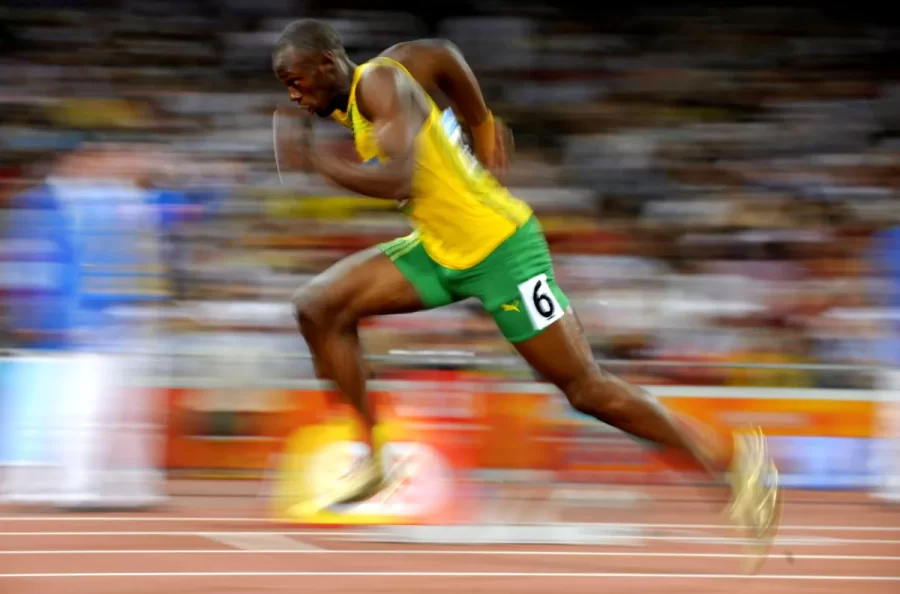
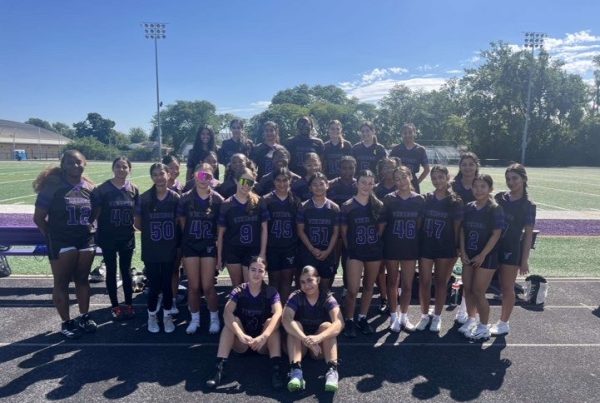

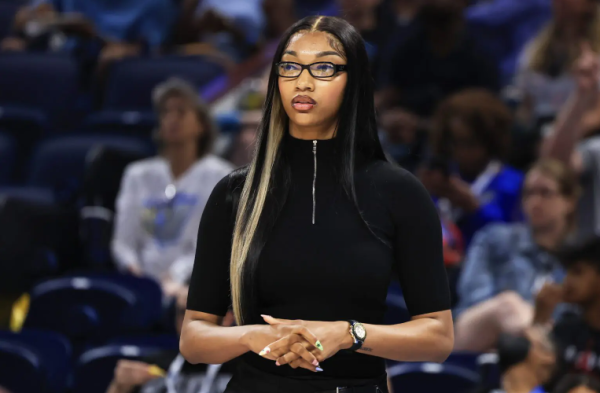
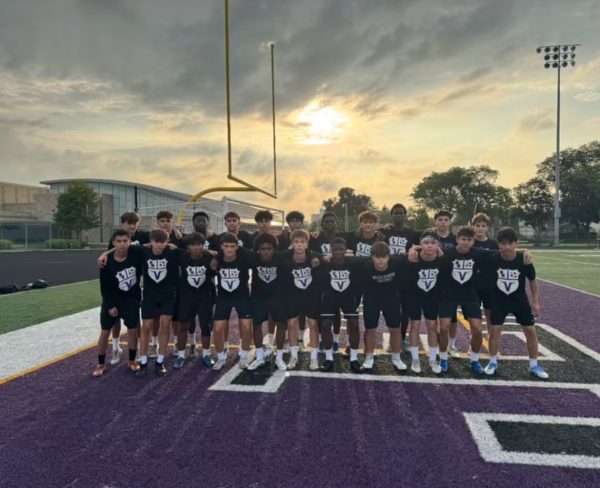
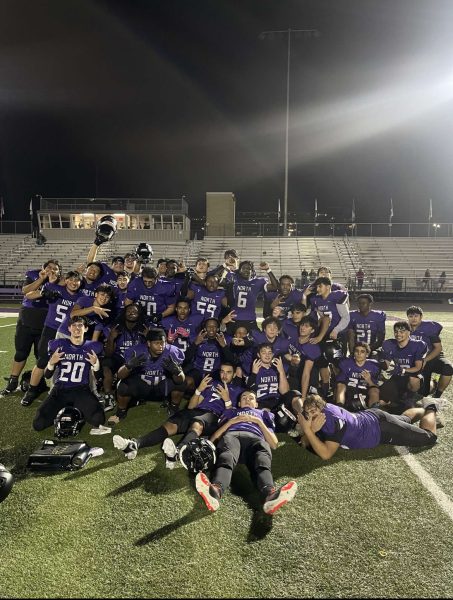
Courtney Hanson • May 9, 2023 at 8:42 am
Jasmine,
Thank you for a very thought-provoking article. You did a great job with providing historical context and modern-day examples.
Great job!